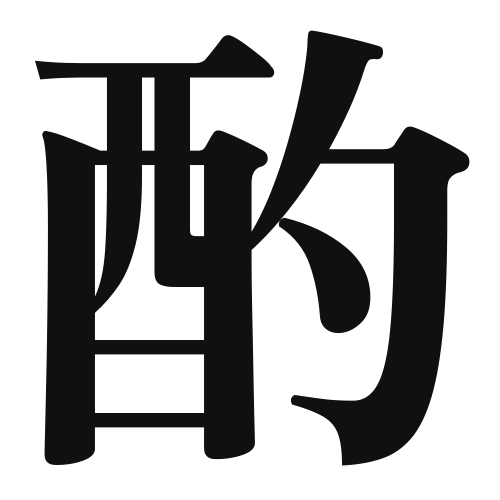1. Overview of Meaning
The kanji “酌” (shaku) means “to pour” or “to serve (liquor).” It is often associated with the act of serving drinks, particularly in social or ceremonial contexts.
2. Formation and Radical
Formation of the Kanji: The kanji “酌” is a compound character that combines the elements of “酒” (sake, or alcohol) and “作” (to make or to do). This reflects the action of pouring or serving alcohol.
Radical: The radical of “酌” is “酉,” which is related to alcohol and beverages.
3. Examples of Usage
Common Words and Phrases:
- 酌み交わす (くみかわす, kumikawasu) – to drink together
- 酌人 (しゃくにん, shakunin) – a person who serves drinks
Example Sentences in Daily Conversation:
- 「友達と一緒にお酒を酌み交わしました。」(I shared drinks with my friends.)
- 「彼はお客様にお酒を酌んでいます。」(He is pouring drinks for the guests.)
4. Synonyms and Antonyms
Similar Kanji:
- 注 (ちゅう, chuu) – to pour (liquid), often used in a more general sense.
- 飲 (いん, in) – to drink, which focuses on the action of consuming rather than serving.
Antonyms:
- 拒 (きょ, kyo) – to refuse, which is the opposite of serving or offering something.
5. Cultural and Historical Background
Relation to Japanese Culture: The act of “酌” is deeply rooted in Japanese culture, particularly in the context of hospitality and social gatherings. It is common for people to pour drinks for each other as a sign of respect and camaraderie.
Proverbs and Idioms:
- 「酌み交わすことで友情が深まる。」(Drinking together deepens friendship.)
